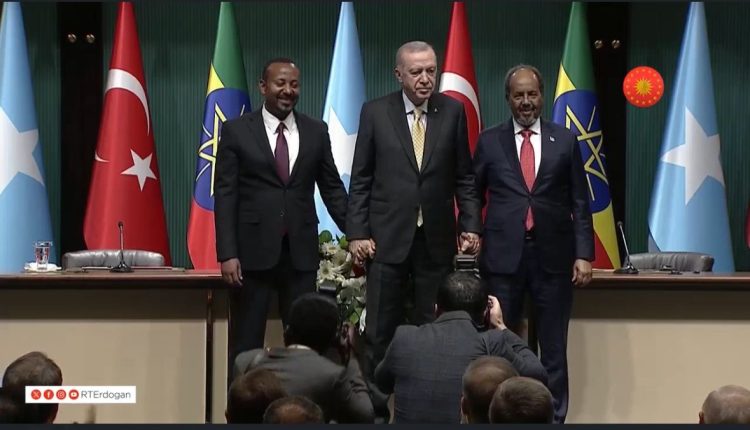After reading the statement on the Ankora Agreement, I was able to identify the following key points bygathering additional information from stakeholders directly involved in the matter:.
1. Ethiopia’s Shift in Position:
While the joint statement did not explicitly mention it, Ethiopia appears to have backed away from a previous agreement with Somaliland. On the other hand, Somalia has altered its stance by withdrawing its demand for Ethiopian forces to leave its territory.
2. The Nature of the Agreement with Somaliland:
The previous agreement between Ethiopia and Somaliland was perceived as a move by Ethiopia to recognize Somaliland as an independent state. In return, Ethiopia sought access to a seaport and maritime presence. The Ankora Agreement, however, shifts this arrangement. Ethiopia now recognizes the sovereignty and territorial integrity of Somalia, while Somalia, in turn, agrees to grant Ethiopia access to its ports.
3. Significance of the Ankora Agreement:
The Ankora Agreement establishes Ethiopia’s right to use ports, but it does not grant Ethiopia ownership of any port. Previously, Ethiopia’s agreement with Somaliland was seen as a potential path for Ethiopia to gain control over a port. Under the new arrangement, Ethiopia’s right to use ports in Somalia would be based on lease agreements or contracts, similar to international norms and the principles of the United Nations Convention on the Law of the Sea (UNCLOS). This approach aligns with the way many countries, such as Djibouti, lease ports to Ethiopia or other nations.
4. Diplomatic and Strategic Implications:
The Ankora Agreement signals a shift in Ethiopia’s diplomatic posture. Ethiopia moves away from its strategy of securing port ownership, returning to a more traditional approach of leasing or contracting port services. This change might be linked to Ethiopia’s realization that its previous approach was diplomatically and practically unsustainable.
5. Impact on Ethiopia’s Strategic Interests:
Unlike the previous agreement with Somaliland, where Ethiopia appeared to be pushing for port ownership, the Ankora Agreement limits Ethiopia to access through leases, concessions, or contracts. This approach is in line with the principles of the UNCLOS, under which coastal states retain sovereignty over ports but can grant access to other countries. Ethiopia has previously pursued similar arrangements with Djibouti for access to the Port of Tadjoura.
6. Diplomatic Costs and Credibility:
The shift from seeking ownership of a port in Somaliland to leasing access in Somalia reflects a reversal in Ethiopia’s diplomatic strategy. This has raised questions about Ethiopia’s consistency and credibility in its foreign policy. The political costs of this reversal are significant, as it highlights a pattern of reactive decision-making rather than a strategic, knowledge-based approach. This inconsistency could harm Ethiopia’s credibility on the regional and international stage.
7. Lessons for the Future:
To prevent a repeat of these missteps, it is essential for Ethiopia to adopt a knowledge-based approach to diplomacy and strategy, rather than one driven by impulsive ambitions. Learning from the mistakes made during this process will be crucial to avoid future diplomatic and economic losses. The case of the Ankora Agreement serves as a reminder that national credibility is a vital asset that should not be compromised by poorly calculated decisions.

